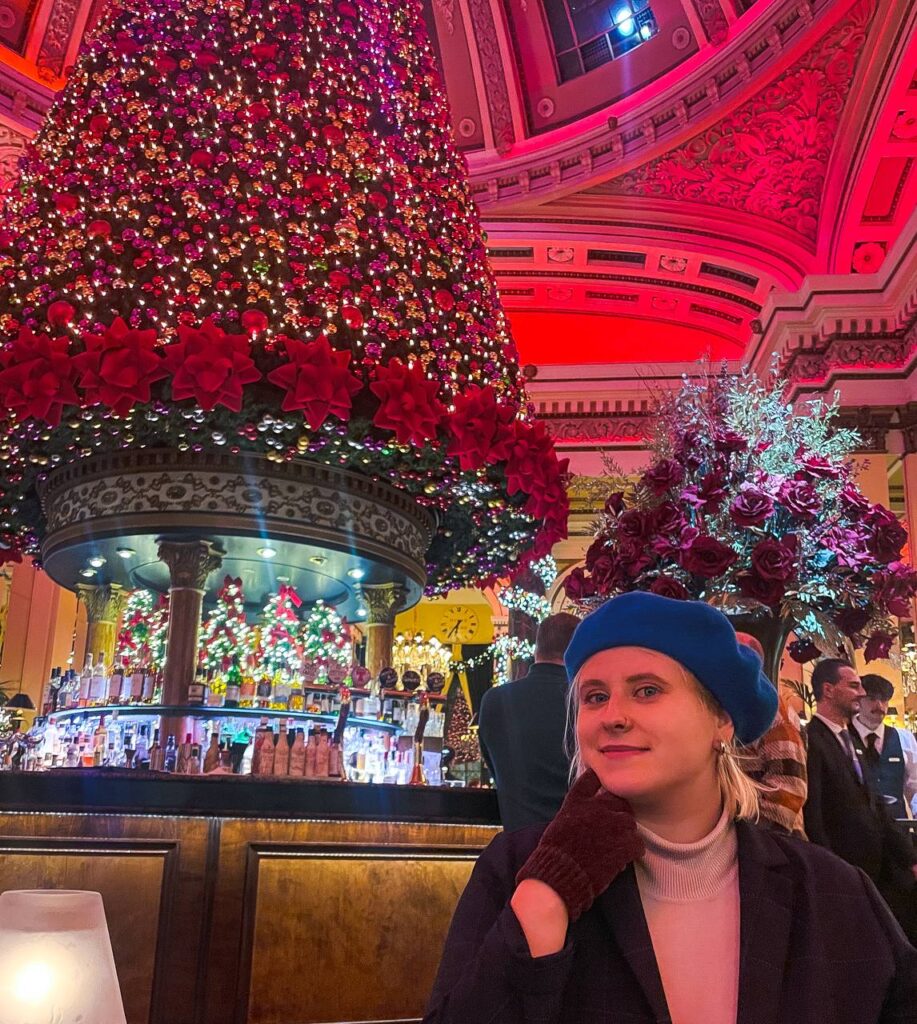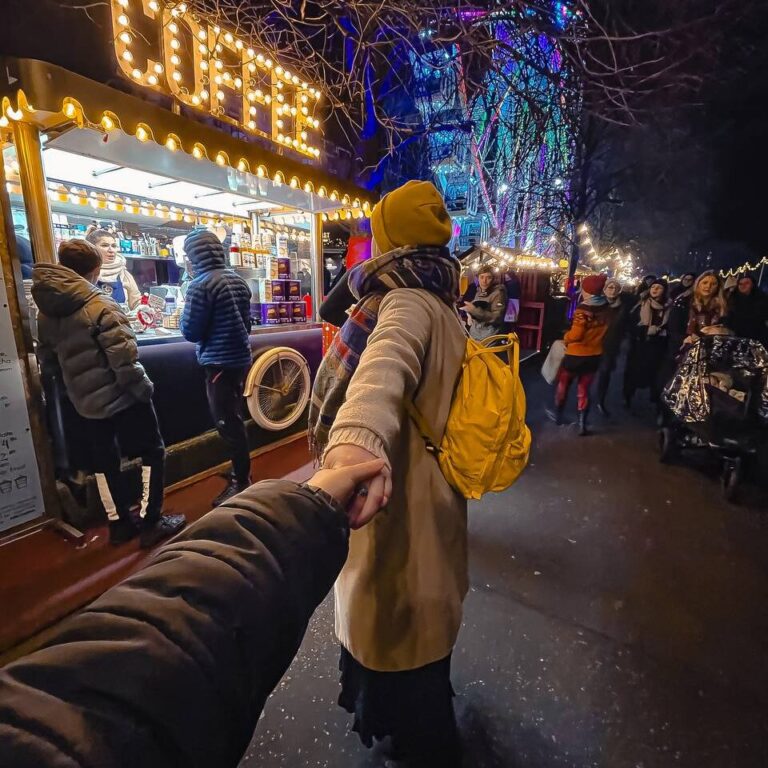Celebrating Christmas in Scotland 2024
Ho Ho Ho! Dare I say the Christmas period is finally here? Time to bake gingerbread, drink mulled wine, and decorate the house. If you find yourself in gorgeous Edinburgh during the festive time and want to know more about local traditions of celebrating Christmas in Scotland, then keep reading.
Table of Contents
Christmas in Scotland

For most of the year, Scotland feels like a mysterious land where ghosts play hide-and-seek in the fog and glow mysteriously in the dark. But it completely changes during December. This time holds special significance for locals as families come together, enjoying quality time and partaking in some holiday shopping. For tourists, a word to the wise: during Christmas days, many shops and restaurants close, so it’s crucial to plan ahead. Christmas days fall between 24/12-26/12. If you’re on the lookout for winter activities in Edinburgh during December, don’t forget to check out my article on winter activities in Edinburgh.
History and Time-Tested Traditions

Now, let’s take a journey through time. Centuries ago, during the winter solstice, the people of Scotland celebrated Yule, a pagan holiday introduced by the Vikings. Houses were adorned with greenery symbolising life, and holy wreaths were strategically placed outside homes to ward off mischievous spirits. Mistletoe, with its magical fertility properties, was widely embraced during the Middle Ages. Fast forward to the 18th century, and mistletoe gained additional fame for a tradition I’m sure you can guess (Muah muah).
Another exciting tradition, still followed by some families today, involves baking Yule bread. Each family member receives their own Yule bread, with a hidden whimsical surprise in one loaf, promising good luck for the finder in the upcoming year.
Due to religious conflicts, Yule was declared an illegal holiday in 1640 and remained banned for almost 400 years. Severe punishment awaited anyone caught celebrating it. Only in 1958 did Christmas in Scotland become a public holiday. Sadly, during the Yule ban, many traditions were lost, but many new ones emerged.
Modern Christmas in Scotland

In modern times, Christmas in Scotland remains a cherished family holiday where loved ones gather, sharing the festive spirit. New traditions involve children writing letters to Santa, adorning Christmas trees, pulling Christmas crackers, and harmonising carols. Christmas Eve (24th December) is typically a prep day for the big celebration. Scots love venturing out to markets and grocery stores during the day and perhaps attending a midnight mass later on. It’s a collective preparation for the grand feast awaiting them the next day.
On the 25th of December (Christmas Day), with most shops, restaurants, and pubs closed, it becomes a day to stay at home and revel in celebration. Families exchange gifts in the morning, followed by a lavish festive meal featuring roast pork, turkey, and Christmas pudding. It’s a day filled with feasting, gifts, and enjoying each other’s company.
The subsequent day, known as Boxing Day (26th of December), has evolved into a prime shopping opportunity with significant sales. However, the historical origin tells a different story. Legend has it that Boxing Day originated in the Middle Ages, with the wealthy granting a day off to servants and gifting them Christmas boxes as a token of appreciation. Another theory dates back to the 17th century, where people left Christmas boxes with treats for service people like postmen as a gesture of gratitude for their hard work.
In certain parts of Scotland, Boxing Day was affectionately called “Sweetie Scone Day”, as lords and ladies generously gifted their staff boxes of scones, fruitcakes, and spices. How about baking some scones and sharing them with friends? Sounds like a delightful plan.
I trust you found this post intriguing, offering a glimpse into the Christmas celebration in Scotland. Remember to smile, have fun, and welcome to Scotland!




